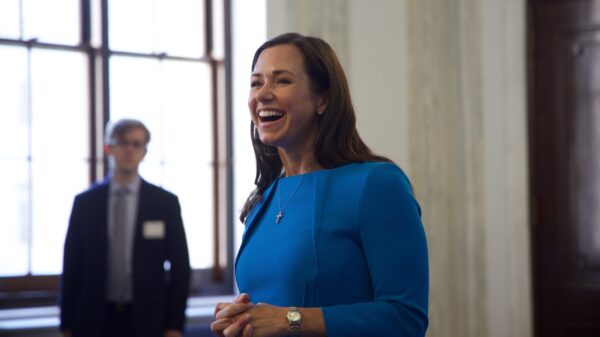By Brandon Moseley
Alabama Political Reporter
Tuesday, Oct. 3, 2017, the Republican controlled U.S. House of Representative passed HR36 the Pain-Capable Unborn Child Protection Act. HR36 would prohibit abortions after 20 weeks of pregnancy with exceptions for cases of rape, incest, or when the life of the mother is at risk.
Congressman Mo Brooks, R-Huntsville, voted in favor of the bill.
“Micah’s Law gives more children like Micah Pickering the opportunity to experience life and ends the barbaric practice of painfully killing unborn children who, if given the chance, can live a healthy life outside a mother’s womb,” Brooks said.
U.S. Rep. Martha Roby, R-Montgomery, said she co-sponsored the legislation to protect the unborn children. Roby delivered a speech on the House floor urging her colleagues to support the bill to “grant greater protections for life under the law.”
“I’ve listened to my colleagues on the other side call this bill extreme. I say to oppose this bill is extreme,” Roby said. “If we won’t stop abortions at six months of pregnancy when a baby feels pain, when will we stop them? We have to draw the line somewhere.”
Rep. Roby shared the story of Micah Pickering, who was born at just 22 weeks gestation and is now a healthy child. Roby argued on the House floor that there is no difference between a baby in the womb and one born.
“Madame Speaker, I’m unapologetically pro-life, and I oppose abortion at any stage,” Roby said. “I will always fight to grant greater protections for life under the law. But as a society, I pray that we will start assigning greater value to life at all stages in this country.”
U.S. Rep. Bradley Byrne, R-Ala., also voted in favor of Micah’s Law. Byrne met Micah last week.
“I simply cannot fathom how anyone would be opposed to legislation to prevent late-term abortions after 20 weeks, a point at which babies can feel pain,” Byrne said. “Every child deserves the chance that Micah had, and today’s vote is a victory for the pro-life movement and for families like Micah’s all across the United States.”
Speaker of the House Paul Ryan, R-Wisconsin, also delivered a speech on the House floor supporting the Pro-Life legislation. Ryan said, “I rise in support of life. In support of Micah’s law. I rise in recognition that advancements in technology today both reveal more about the stages of life, as well as show us promise for preserving it. As unpleasant as it may be, technology reveals something to us about suffering. It now shows us that the unborn can feel pain inside the womb.”
Rep. Ryan said, “The science is in. The science is real. At 20 weeks old, ultrasound images reveal that unborn babies respond to unwanted stimuli—pain—the same exact way adults do: They recoil. They contract. In cases of abortion, these unborn babies feel pain, they suffer. That is hard to hear. It is very hard for me to say. But now that we are seeing scientific proof that these unborn babies are in pain, what will we do? We cannot claim ignorance. Their pain is no longer invisible to us. And we cannot as a society—with good and upright conscience—ignore it.”
Speaker Ryan continued, “The Pain-Capable Unborn Child Protection Act, sponsored by our colleague Trent Franks, protects unborn babies by restricting abortions to 20 weeks and after fertilization occurs—the point at which science has proven an unborn baby can feel pain. It is easy to turn a blind eye to the pain of others. For a moment, it can feel like ignoring it means that it does not exist. But our hearts and minds will always remind us: We cannot stop the pain of the world by turning away from it. And we must not turn away from the pain of the most vulnerable among us—the ones who have nowhere to run to. Our humanity shines brightest when we stand up for those who are suffering, when we protect people from pain.”
The 1972 U.S. Supreme Court decision, Roe v. Wade struck down state laws, such as Alabama’s, that banned abortions.
Pro-Life advocates argue that scientific studies into the neurological development of babies have demonstrated that, at the 20-week mark, an unborn child can hear music, feel pain, and survive outside its mother’s womb. The United States is one of only seven countries in the world that allows elective abortions past 20 weeks.
The Congressional Budget Office estimates that this bill, if enacted, would prevent thousands of abortions.
The bill passed the House by a vote of 237-189.






















































